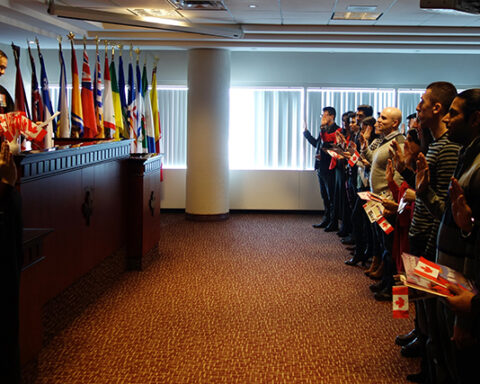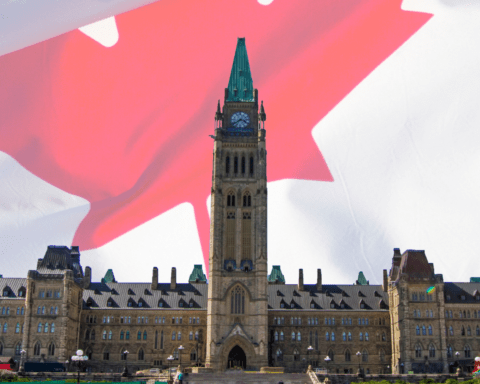How inclusive is Canada’s history? This Remembrance Day, as Canadians struggle to find relevance and meaning in global conflict, we might ask ourselves how our own lives have been influenced by a common history in wartime. Many Canadians today, who immigrated here in the last half century, might not see themselves reflected in the national narrative of Great War and Second World War participation. Is it time for a critical rethinking of Canada’s defining moments?
There are grounds for a reconsideration of our wartime history, and the character of our national identity. Operation Oblivion depicts one such historic moment, when a marginalized community stood up, and fought for its rights — and identity — in Canada. This real-life story, researched and proven in a re-examination of historic documents, veterans’ testimony, and unsealed military records, builds a bridge between today’s generation and those who fought for it. Narrator Colm Feore describes it as “a coming of age” story for the Chinese-Canadian community. It is indeed that, and more. It also projects important parts of our past into living memory — and the identity of post-war Canada.

Linking past and present
Between takes during our filming of interviews with Chinese-Canadian veterans of the Second World War, I asked Operation Oblivion survivor Hank Wong what he would have done had he not gone off to war? Without hesitation, he replied, “Why, I would have had a great future working at my uncle’s restaurant.” I wish we had captured this conversation, because Hank’s poignant response illustrates the sum of all dreams that a young Chinese person living in Canada at the time could have imagined. Before the war, we were not recognized as citizens, nor did we have the right to vote. We did not share the same civil rights. Before the war, our community had a precarious future in Canada.
Operation Oblivion depicts one such historic moment, when a marginalized community stood up, and fought for its rights — and identity — in Canada.
For Hank and his generation, the Chinese Exclusion Act (1923) had a lingering effect on their lives, excluding them from the professions, by virtue of not being included on voters’ lists, and other opportunities that most Canadians took for granted. But the war changed everything. By 1943, when there was no end in sight to hostilities, as many as 800 young Chinese men and women had answered the call of duty. Others in the community filled labour shortages in the shipyards, and munitions factories; coveted jobs that previously had been denied to them by powerful labour unions and racist laws.
Historical Significance
When the war ended, Canadian society had undoubtedly changed, but returning Chinese veterans still had to fight for their rights, and citizenship. Per capita, Chinese-Canadians had contributed more to the war effort than any other group. Returning war heroes, like Roy Mah, Douglas Jung and Frank Ho Lem, used their service to push governments to grant equal rights. Operation Oblivion uncovers inconvenient truths in Canada’s history, and balances the national narrative with heroic actions to right the wrongs of the past.
Telling the story of our Chinese-Canadian war veterans spans the generations and values held by Canadians — past and present. It is a story that has outlived more than the 25 years of official secrecy pledged by many of our vets, and it acknowledges that their most important victory began in conflict, but eventually was won off the battlefield.
Brad Lee is the co-producer with Micol Marotti of the recently released Operation Oblivion, a World War II documentary that commemorates Chinese-Canadian war veterans and their contributions to building post-war Canada. Brad, who is an educator and journalist, believes that critically rethinking our past, and telling a more inclusive history, is essential to ensuring Canada’s future.
This post on the National Film Board of Canada’s blog was republished with permission from the author.




